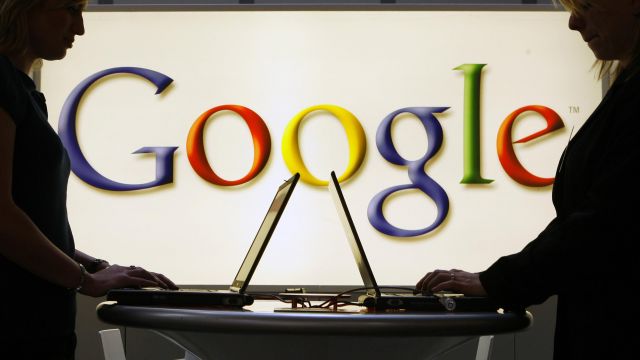
Google Chairman Eric Schmidt attracted some attention last week when he announced that his company would no longer be funding the American Legislative Exchange Council (ALEC), a conservative think tank that pushes a big-business agenda at statehouses across the country. Schmidt’s complaint? The group had been inhibiting action on global warming.
Now, a handful of companies from across the tech sector, and beyond, are following suit. Facebook announced that it is unlikely to renew its membership in ALEC next year, and Yelp and Yahoo told Common Cause, a good-government group that tracks ALEC’s notoriously secretive agenda, that they have already parted ways with the organization.
“Because Google is such a giant, we’ve seen a domino effect,” said Jay Riestenberg, a research analyst for Common Cause, in a call with reporters.
Microsoft also announced last month that it would be leaving ALEC. On top of the recent wave of tech departures, International Paper — the owner of HammerMill — confirmed to Common Cause that it too had left, and the National Journal reported on Monday that Occidental Petroleum, a major oil company, was cutting ties. ExxonMobil also recently denied to the Toronto Star that it is currently involved with ALEC, though ALEC’s website appears to contradict that statement.
Many of the tech companies announcing their departure were involved in ALEC to support its free-market initiatives on communications and technology, but found the organization’s treatment of issues related to climate change distasteful.
“Everyone understands climate change is occurring and the people who oppose it are really hurting our children and our grandchildren and making the world a much worse place,” Schmidt said, in response to a question from a listener on NPR’s Diane Rehm Show. “And so we should not be aligned with such people. They’re just literally lying.”
Nick Surgey hopes that the recent attention to climate change has created a tipping point. Surgey is research director for the Center for Media and Democracy, a group tracking ALEC that in 2011 revealed much of the group’s agenda by releasing its library of model legislation — boilerplate bills co-written by lobbyists that state-level legislators present as their own. “It seems to me that everything that happened over the last few weeks — the UN talks, the climate protest in New York — has amounted to a big shift,” Surgey told BillMoyers.com.
“It’s not exactly new that ALEC has been denying the existence of climate change or pushing policies the make it impossible to take action on carbon. But what is new is that we’ve reached this tipping point that any companies that are concerned about brand damage are deciding that it’s not worth risking the ongoing damage to their reputation through ongoing participation in ALEC.”
“But it’s a surprise, I have to tell you,” he added.
In response to Schmidt’s statement on the Diane Rehm Show, ALEC sent a letter to Google executives, signed by 214 state legislators, arguing that the group doesn’t deny climate change. “[Y]our calculated departure from ALEC is based on misinformation from climate activists who intentionally confuse free market policy perspectives for climate change denial,” ALEC wrote. “No ALEC model policy denies climate change; however, the organization does maintain model policy designed to address the scientific and economic aspects of the issue of climate change. The organizations that pressured you consistently conflate climate change denial with having significant concerns over government mandates, subsidies and climate regulations.”
Surgey clarifies that ALEC both allows climate deniers to lobby its membership and advances model legislation that seeks to undermine government action to limit pollution and cut greenhouse gas emissions.
At the organization’s 2014 meeting in Dallas, the Heartland Institute, a climate change-denying think tank, presented to ALEC’s membership a slideshow arguing that “there is no scientific consensus on the human role in climate change.” It argued that “the Intergovernmental Panel on Climate Change, a project of the United Nations, is not a credible source of science or economics” and “there is no need to reduce carbon dioxide emissions and no point in attempting to do so.” (Ninety-seven percent of climate scientists agree that global warming is attributable to human activity.)
ALEC also often takes the angle that climate change may be beneficial, stating in its model legislation that it could lead to “deleterious, neutral, or possibly beneficial climatic changes.” In 2011, the organization put together a panel touting “the many benefits of atmospheric CO2 enrichment,” and, the following year, ALEC attacked initiatives requiring utilities to draw a greater share of their energy from renewable sources.
This isn’t the first time ALEC has seen its corporate members move toward the exits in response to public criticism of the organization’s agenda. In 2012, several corporate funders distanced themselves from ALEC, citing the group’s support for “Stand Your Ground” laws after Trayvon Martin was killed. That prompted ALEC to disband its Public Safety and Elections Task Force, which was also responsible for controversial voter ID legislation.
Though big players like Google and Yahoo have left ALEC, some large tech companies, including AOL, eBay and Expedia, remain members. Furthermore, Google still “provides support to” other groups that lobby for inaction on climate change, including the Heritage Foundation and the US Chamber of Commerce — both of which have forcefully opposed the EPA’s efforts to cap carbon pollution.

This work is licensed under a Creative Commons Attribution-NoDerivatives 4.0 International License.


